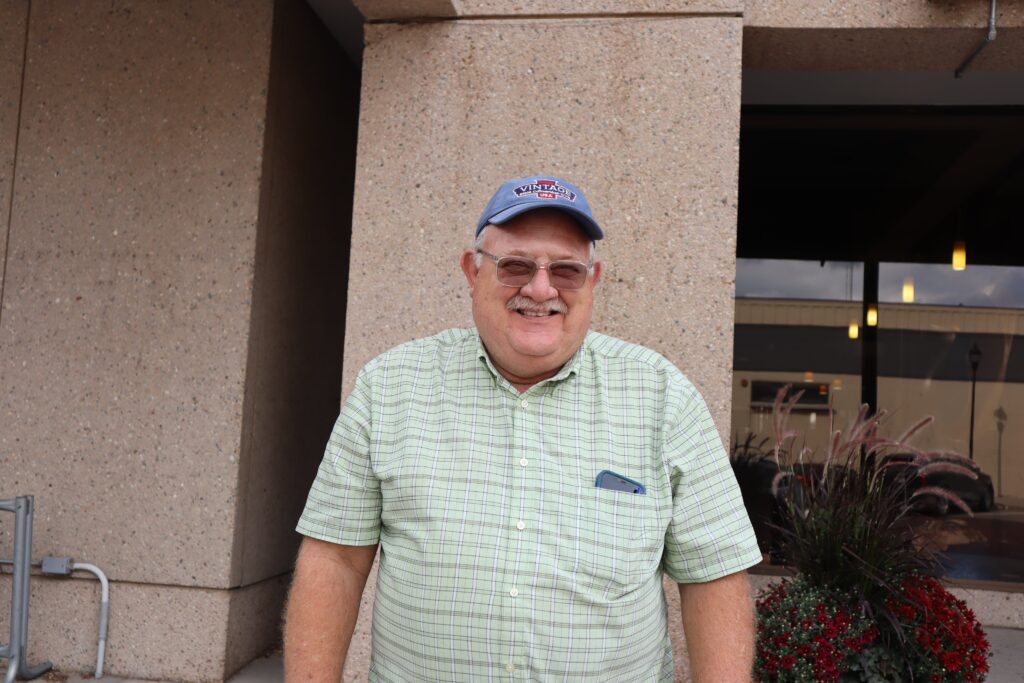Robin Smith has worked for the Youth Rehabilitation and Treatment Center (YRTC) in Kearney since 1984 and has been a NAPE member for nearly as long. He’s spent a long career advocating for his fellow employees and the youth they treat. As the decades have passed, Robin said that there have been substantial changes to the facility and to its approach to treatment.
Robin started in the maintenance department and said that they would often recruit kids to help with things around the facility. He said the kids felt responsible for themselves and one another back then and YRTC-K was a great place to work.
“Things have changed a lot. It’s supposed to be a rehabilitation and treatment center – our old program made the kids pretty self-sufficient. They took care of themselves and held each other accountable. In the early 2000s, though, things changed. I was sitting right next to the governor when he told us that they didn’t want kids policing themselves,” Robin said. “So, we stopped following that program and it went downhill. The staff became the enemy, we put up a fence, and we became a prison. It wasn’t fair to the staff or to the kids.”
As a union leader, Robin has testified at the legislature on behalf of union members at the facility and has taken every opportunity to talk to the press and to senators to advocate for change.
“The facility used to be ahead of the curve. We’re 145 years old and we were intended to be a therapeutic facility. We had individual cottages that were meant to function as family-style living. Rehabilitation was more successful back then,” he said. “The whole history of juvenile justice is interesting. Back then, a kid got in trouble and there was no juvenile court, they just went to the state penitentiary. So, we were ahead of our time in giving them a place to go where rehabilitation was the objective.”
Robin has spent his career advocating for his fellow employees as a union steward, too. He has represented his colleagues in everything from discrimination to unjust discipline. He knows that the work the staff does is often difficult and he likes to make himself a resource for them.
“Sometimes things are so frustrating here and well my office is in the basement so I tell them that when things get tough, before they do anything else they can come down to my office and let it all out. Some of them yell or cry. And they always leave feeling a little bit better,” he said.
According to Robin, the success rate at YRTC-K used to be high and kids who went through their treatment program often went on to do well for themselves. Some of them even returned to the facility to visit.
“I had a guy who was here in the 50s come back and talk to me about how when he left here, he went to California, saw the orange groves, and decided he needed to get out of Nebraska permanently,” Robin said. “When he was going through our program, they sent him up to work at the hospital taking temperatures and when he got to California he was able to get a job right away at a Veterans hospital just because he had that experience from when he was here. He wound up being super successful selling insurance to Veterans. After he retired, he came back to our facility to see what it was like now. That’s the success we’re supposed to have and that’s what we need to get back to. We need a little sunshine here.”
Robin thinks that if changes are made in the philosophical approach to rehabilitating troubled youth at the facility, YRTC-K can be as successful as it used to be.
“The philosophy has to be that you instill a sense of care in the kids – staff used to say that they saw the biggest changes when all of them took responsibility for themselves and one another and it wasn’t the kids against the staff,” he said. “Our success rate was relatively high when we were following a program and we can get back to that but it will take some major changes.”
Robin will continue to advocate for the youth and his fellow employees at YRTC-K. The decades of knowledge and experience that he has acquired make him an asset to the State of Nebraska.
